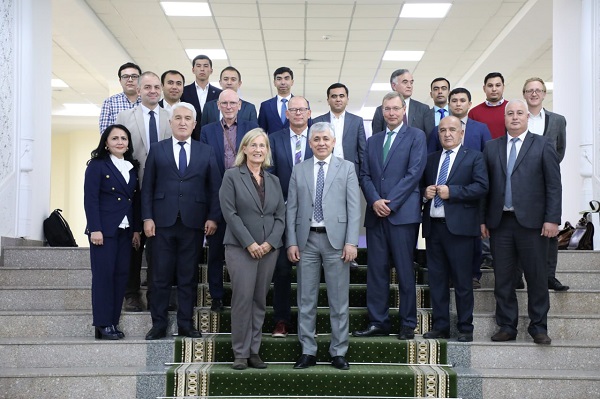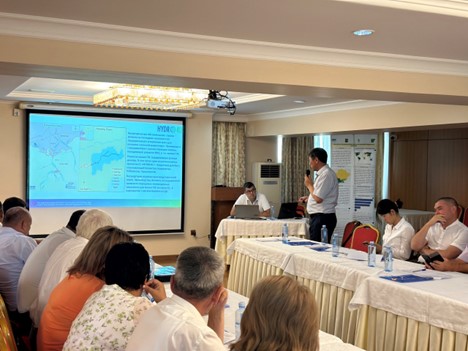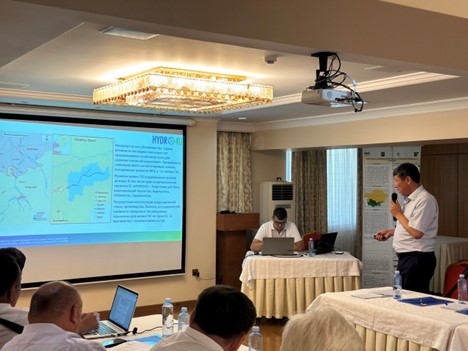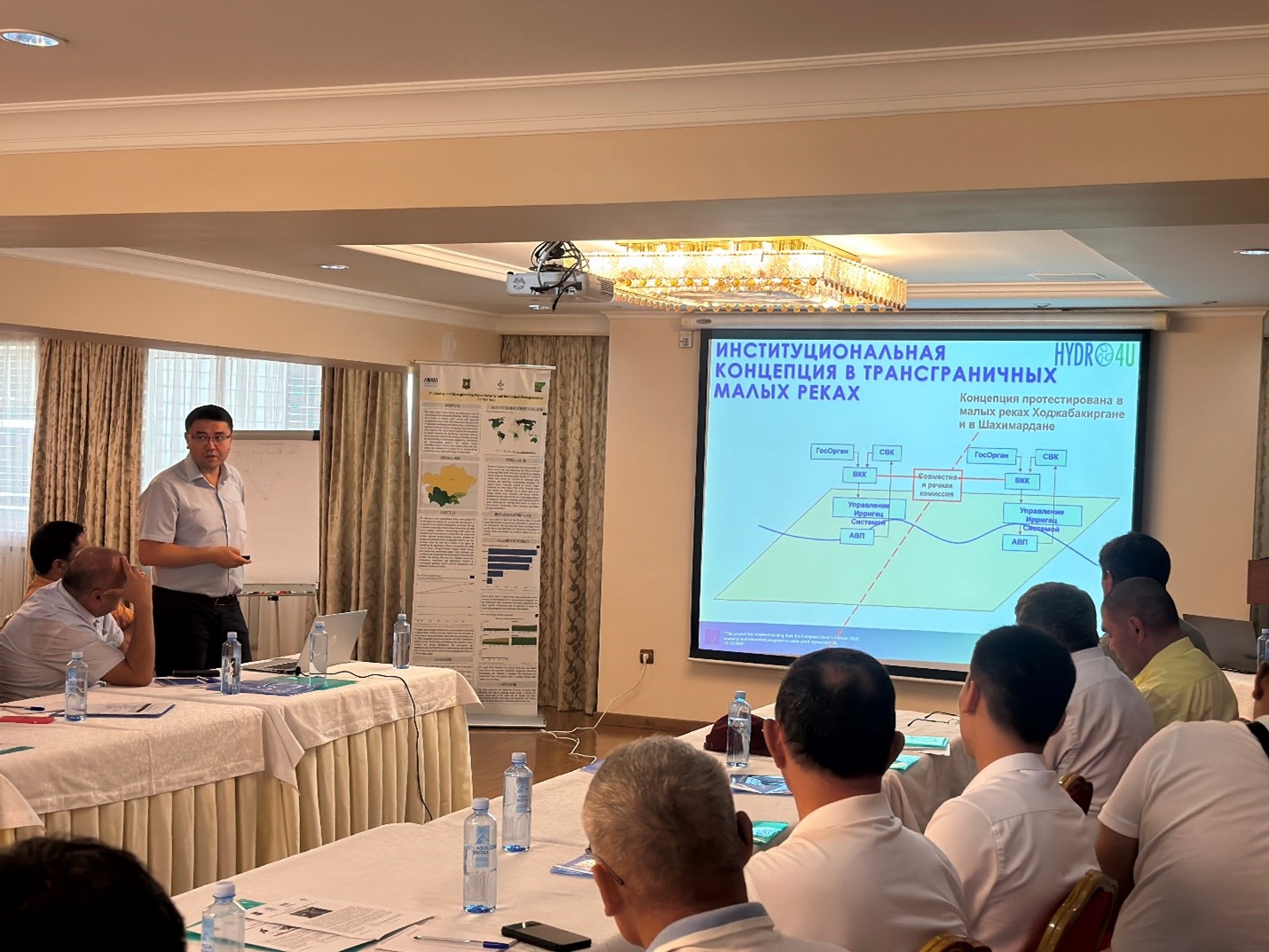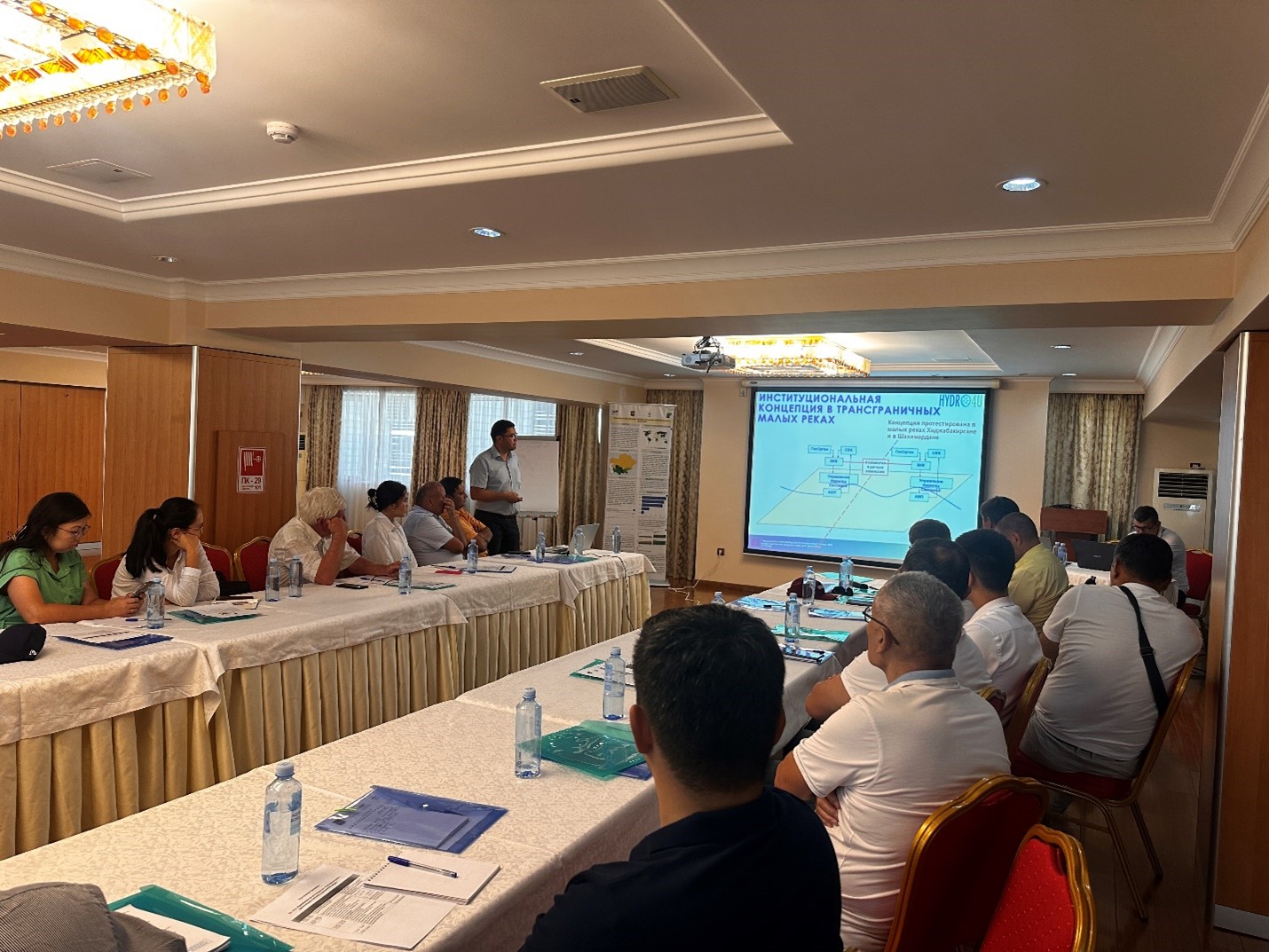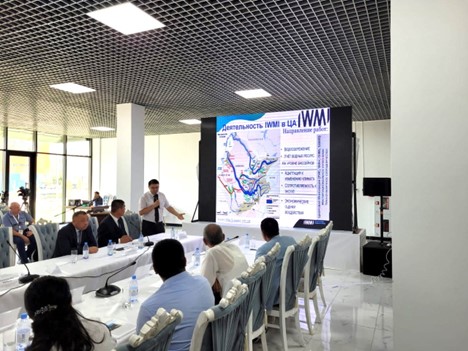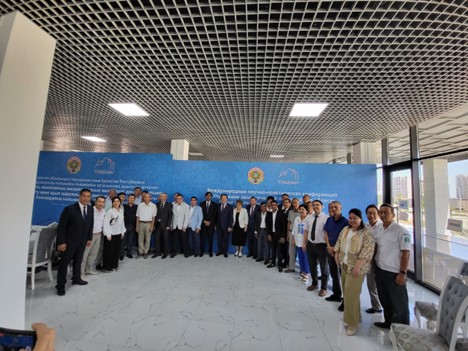During the workshop titled “Enhancing Water Security and Managing Water Resources in Central Asia”, which took place on July 31 2023 in Shymkent, Kazakhstan, Abdikhamid Urazkeldiev, the national consultant of IWMI (Hydro4U project), delivered a presentation on the topic “Small Hydro Power (SHP) in the Context of the Water-Energy-Food Nexus and Climate Change: Contributing to the Development of Green Energy through Cross-Sectoral relations.”
The workshop was part of a series of similar events focusing on enhancing capacity and promoting collaboration among stakeholders in the region for better water security organized by IWMI Regional Representative Office for Central Asia in partnership with local institutions in Central Asia. In addition, this workshop was also sponsored by the U.S. Forest Service.
During his presentation, A. Urazkeldiev highlighted the increasing relevance of Small Hydro Power (SHP) for the countries in Central Asia and emphasized the support they receive from various donors, including the EU regional project, “Hydro4U – Hydropower for You,” which covers Kazakhstan, Kyrgyzstan, Uzbekistan, and Tajikistan. A more detailed explanation was provided about Hydro4Us’ Test-site “Badam” in Southern Kazakhstan.
The participants of the workshop discovered that through collaboration among representatives from the fields of science, industry, business, and research, advanced innovative technologies are being introduced to the countries of Central Asia, particularly in the development of small hydropower plants. The implemented technologies are based on European Small Hydropower technologies with the aim to find innovative solutions tailored to Central Asian needs and the use of green energy.
___________________
В ходе семинара «Повышение водной безопасности и управление водными ресурсами в Центральной Азии», который состоялся 31 июля 2023 года в Шымкенте, Казахстан, Абдихамид Уразкелдиев, национальный консультант IWMI (проект Hydro4U) выступил с докладом на тему «Малые гидроэлектростанции (ГЭС) в контексте взаимосвязи Малые ГЭС в контексте Нексуса «Вода-Энергия-Продовольствия» и изменения климата (Вклад в развитие «зеленой» энергетики: преимущества межотраслевых связей)». Семинар стал частью серии мероприятий, направленных на укрепление потенциала и развитие сотрудничества между заинтересованными сторонами в регионе для повышения водной безопасности, организованных Представительством ИВМИ в Центральной Азии в партнерстве с местными учреждениями в Центральной Азии и спонсируемых Лесной службой США.
Во время своего выступления, А.Уразкельдиев отметил растущую актуальность малых ГЭС для стран Центральной Азии и подчеркнул поддержку, которую они получают от различных доноров, включая региональный проект ЕС «Hydro4u – Энергия для вас», который охватывает Казахстан, Кыргызстан, Узбекистан и Таджикистан. Было предоставлено более подробное объяснение об испытательной площадке Hydro4U под названием «Бадам» в Южном Казахстане.
Участники семинара узнали, что благодаря сотрудничеству представителей сферы науки, промышленности, бизнеса и исследований в странах Центральной Азии внедряются передовые инновационные технологии, в частности, в области развития малых ГЭС. Эти технологии получены из стран ЕС и направлены на продвижение использования зеленой энергии.

